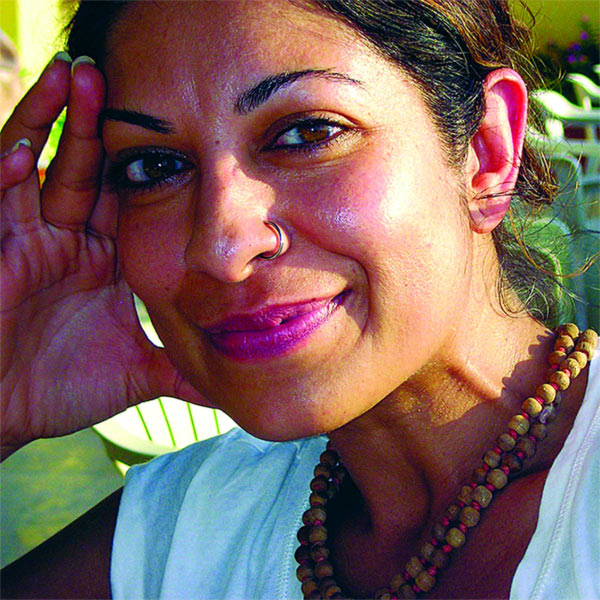
Filmmaker Nisha Pahuja, whose widely acclaimed documentary opens in Indian theatres on June 6, in conversation with Aseem Chhabra.
Indo-Canadian documentary filmmaker Nisha Pahuja has examined post-liberalization India in different ways.
Her award-winning film Bollywood Bound explored four young Canadians of Indian origin -- including a brother and sister, who are obsessed with India's popular Hindi language film industry.
That obsession takes them to Mumbai where they go through intense acting coaching.
But their efforts lead to mixed results.
With her new film The World Before Her, Pahuja, 46, set out to explore the world of beauty pageants in India.
But as it commonly happens with documentary films, The World Before Her became a larger and more complex project, also giving us a rare glance into the lives of young women who follow the Hindutva ideology and attend the Durga Vahini camps.
The documentary had its world premiere at New York's Tribeca Film Festival in 2012. It was the only feature-length film from India at that year's festival.
A powerful study of the many realities of modern India, it went on to win the festival's best feature documentary prize.
Pahuja spoke to Aseem Chhabra about the film.
How did the process start for you? Did you want to make film that narrates two parallel stories from the beginning?
In the very beginning, I really wanted to make a film looking primarily at the Miss India pageant, as a way to understand and explore India as it was going through changes.
Then I started to read up on the Hindu fundamentalists. I learned about the big protest that happened in 1996 against the Miss World beauty pageant in Bengaluru.
I also learned about Rajnath Singh, the former Uttar Pradesh chief minister who was a member of the Bharatiya Janata Party and had banned beauty contests in his state
Initially, the Hindutva focus was going to be a sidebar story to the main pageant. When I got to India in 2009 to do research -- and I started to meet the fundamentalists -- they just became so much more interesting.
I realised that there was a strong opposition against the pageants for two reasons -- the rejection of Westernization and people who were not willing to see women in skimpy clothes.
Over a period of time the film became the story about the beauty contests, the fundamentalists and with a feminist angle that I wanted to incorporate.
Please .
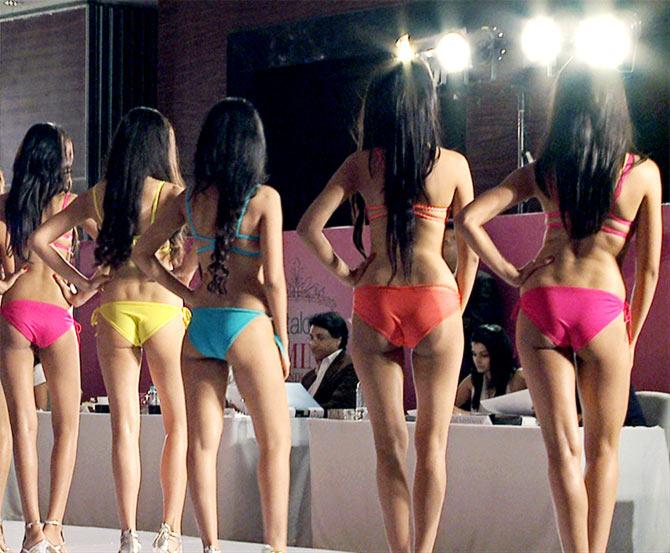
You make a comment in the film that yours was the first film crew that was allowed inside the Durga Vahini camp. How difficult was it?
It was tough. It took two years. First, I tried to go through the Vishwa Hindu Parishad’s media department and they tried to shut me down. They were polite, but it was clear that didn't want me snooping around.
Somehow I managed to circumvent them and met someone who is very powerful, with a lot of money and was clearly financing many of the activities.
This person took a bit of liking to me. For some reason he found me interesting.
I challenged his views. I was never dishonest about how I felt about the Hindutva ideology.
It was clear I had issues with what they were espousing, with their worldview. And I think they respected that. But I also told them that as a human being and as a journalist, I wanted to understand them. I didn't want to simply say that they are bunch of lunatics. As it turned out, they wanted somebody to hear their point of view.
On the other hand it must have been easy to get into the Miss India beauty contest?
It was easy to get access to the pageant, but it wasn't easy to film the pageant. That was very difficult. They would have been fine if I had kept it shallow.
It was also the girls, the contestants -- they were so busy, working long hours, often very tired.
Please .
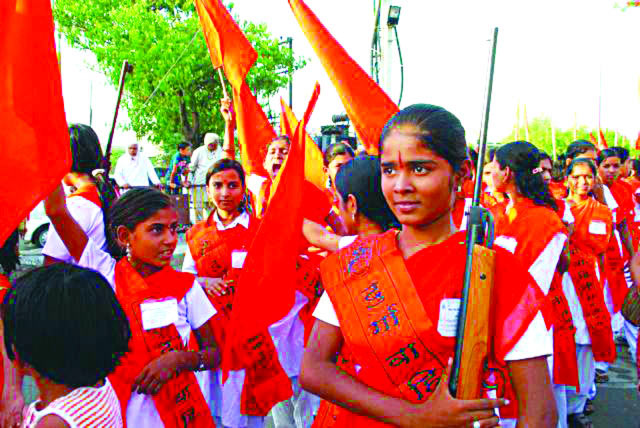
The Miss India contest you show is held in Mumbai. But do the contestants represent every state?
They come from all over India, but a lot from Mumbai and Delhi.
It is more about regions. There are regional pageants -- Miss India East or South, and the winners of the regional pageants then enter the top 20 final contest in Mumbai.
The access you got to the parents and the stories you narrate are remarkable, especially of the young girl from Jaipur, and the other one whose father left the family when she was born, because he did not want to raise girls.
Yes, the second one was Pooja Chopra, raised by a single mother. She won the title in 2009.
Those were really tough stories, especially filming one mother when she starts to cry at the end of the pageant as her daughter loses and their dreams are shattered.
They were so generous.
The one thing that was amazing about making this film was the generosity of the people I met. Even Prachi (the main character in the Durga Vahini segment of the film) and her father.
He was very honest, even though he is a problematic character. But I respected him.
What message did Prachi's father want to give you by being so honest? Or did they want to share their way of life with you?
When we look at them we think that what they believe in is wrong, abhorrent, problematic. But for them it is how they want the world to be. They love their country, they love India.
Please .
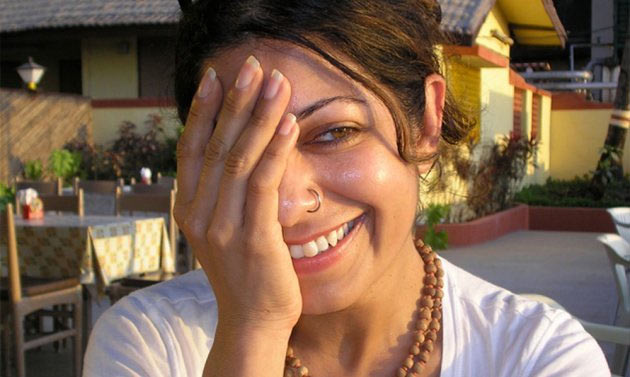
Loving India is one thing, but Prachi's father says in the film that all Muslims think Hindus are kafirs (infidels). I wonder if he has ever met a Muslim! I was amazed at how you got so much truth out of them, like when that one young girl proudly says, 'I have no Muslim friends.' You let them speak, but did you discuss other points of view with them?
I don't show it in the film, but I actually got into an argument with that young girl.
She is about 14 years old, and still a child, but she's so strong, so opinionated. She kept asking me why I lived in Canada, and said that I was disloyal to India. She said ‘You should come back; this is your home.'
I always challenged their beliefs, but I felt also that you have to let people speak. You have to let them express what is it that they feel in order to really change the world in a constructive way. We can’t just hide these things and sweep them under the rug.
You had to show the complete picture. That's what makes your film so compelling. Tell me about Prachi. She is educated and is such a firebrand speaker. What did you learn from her as a person?
She's in law school. I feel that if Prachi was born here, or had a father who was less complicated and not as dark, she would be a different person. All that energy she has, the will, she could use it to do something more positive. She is unstoppable.
But clearly she has been brainwashed by her father. And we learn about the physical abuse he subjected her to. Both father and daughter had no sense of shame talking about that. It is just an accepted fact.
That's what it felt like. And the fact they felt comfortable to talk to me. It was something he revealed; I didn't go looking for that detail. It was perhaps because I was there with my Indian crew that the family became very close to us.
At one point you show the girls from the Durga Vahini camp marching through a Muslim neighborhood. What was the slogan they were shouting?
It was shocking, no? It goes, 'Doodh maango, kheer denge. Kashmir maango cheer denge! (Ask for milk, we will give you cream. Ask for Kashmir, we will make you scream).'
I understand that the Hindutava story became very interesting, but you still wanted to show two parallel stories. What were you aiming through that?
I wanted to show how women were being used to create ideas of Indian identity.
The women are being used and women are also in the process of creating that identity of India. And the country to me is conflicted, but it is trying to decide what it wants to be, especially in the post-liberalization context.
It is on the verge of something quite fascinating, it is evolving. Just as people evolve, India is also going through a process of evolution.
Part of the evolution is if India will be modern, Westernized, and capitalist or is it going to be traditional. And then within that what was important for me was the question -- what is the future of women?
I ask the question -- how can you be the biggest democracy in the world when you are aborting 750,000 girls every year, because you want sons. What kind of a democracy are you building?
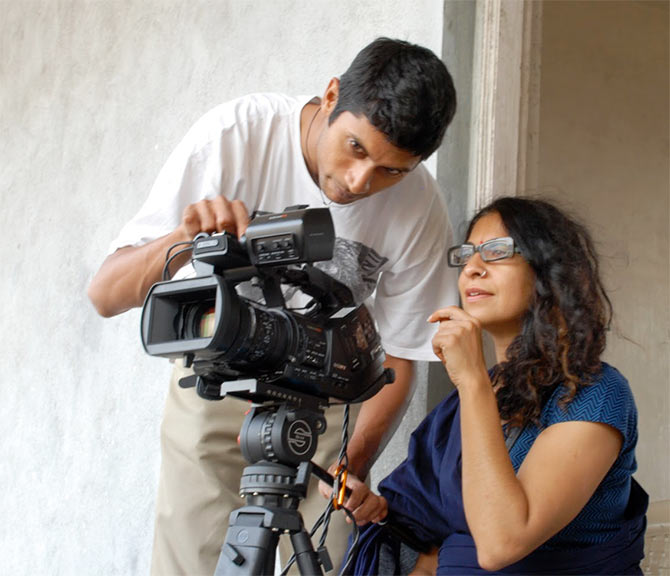
Did you understand why the beauty pageants are attracting women from different classes of India?
I think everybody wants to be a part of it.
One of the girls I was following for a while, who ended up not participating in the film was Tulsi. She came from a village in UP, which just got electricity a year ago. She was incredible. She spoke no English, but she watched TV and had big goals.
The aspiration is there in everyone in India, because of the power of television, but only a select few are going to be given that opportunity, especially in the context of the Miss India pageant.
These girls are being groomed to compete internationally. What the organisers want is to send articulate, well-spoken women to represent India.
What I sensed here was that while the young women could speak English, their views were sometimes so conservative.
One of the contestants is asked what would she do if her son turns out to be gay. And her response was shocking. That showed so much who she really was. The English she was speaking did not make her liberal minded.
To me, that was one of the more interesting things I learned about the girls in the pageant -- that they actually weren't that progressive. You would think so if you see them in bikinis and short dresses.
But it was a mask. And then I began to realise that in some way the whole country is wearing this mask.
They are mistaking materialism and capitalism for liberal and progressive thinking. Just because you can buy anything you want doesn't make you liberal. The mindset of many people hasn’t changed.
Please .
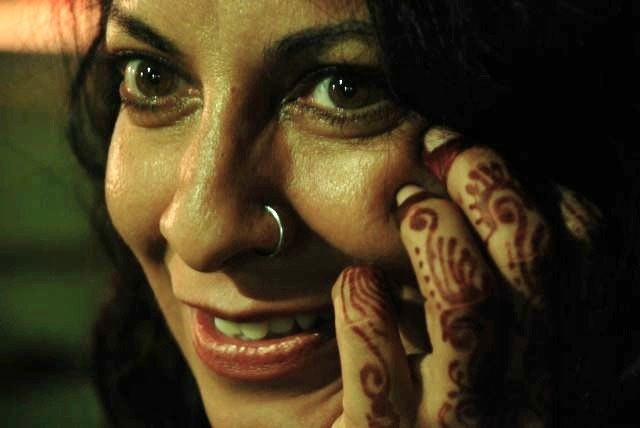
Towards the end you have Prachi’s family watch the beauty contest on television. What was the idea behind that?
I had to make the two diverse worlds meet at some point.
Originally, Durga Vahini was going to protest the pageant and I thought that would be fantastic for the film, where I would film the camp, the pageant and then the two worlds would collide. But the protest didn’t happen. So, then I requested Prachi and her family to watch a video of the pageant
to get their reactions.
I have to say you did terrific work with the film. If I say your film made me angry, it is a complement to you.
That’s great. Because it should affect people!
How long were you in India and what were your sources of funding?
I would make trips for six months and then come back. It was a long period of research.
The total process took me four years.
The funding came from Arte in France and that opened other doors. I also got money from the Gucci Tribeca fund as well as the International Documentary Film Festival in Amsterdam.
What was the biggest challenge of making this film?
The challenge was working in India.
The country challenges everybody. One is constantly trying to make sense of things that baffle you.
You have let things be the way they are. When you grow up in the West where you develop a rational mind, a place like India astounds you, but you cannot judge India.